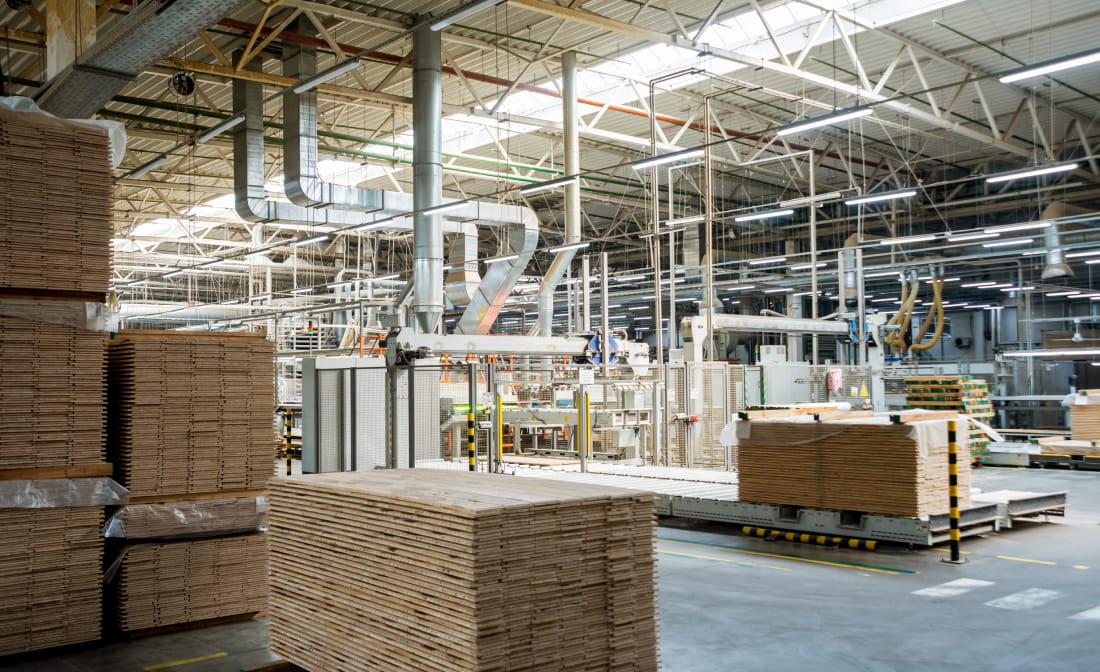The wholesale and distribution industry is now undergoing a massive technology-inspired shift. Nowadays, to stay competitive, companies should perfectly know where their products are, what inventory is left in stock in what location, calculate flexible discounts on the go, manage customer-oriented processes, and collect business-critical data in one system to fuel the decision-making process.
The perfect solution to these tasks is an ERP system. But there are dozens of vendors out there, and it might be hard to choose the right solution that will fit the specific company's structure and unique business processes. What to look for when shopping for an ERP? Today we will talk about four key components of such systems to look for.
Intro: benefits of ERP software for wholesale distributors
ERP, which is an acronym for Enterprise Resource Planning, is a solution that helps companies to better understand what goods they have in stock, what to plan for procurement, efficiently manage all branches and warehouses.
Basically, ERP helps to avoid situations when the customer wants to purchase something, which is not in stock or having too much inventory to fill the current demand (overstocking) and accumulating business-critical data in one system for better management and accounting. This leads to business processes optimization, cost reduction, and revenue growth.
Features to look for in ERP for distributors and wholesalers
ERP systems are used by wholesalers and distributors to solve several tasks that may seem simple at first glance. First, they need to manage their warehouse better, reducing costs, and optimizing the procurement and shipping process. Also, they need to automate their sales tasks to achieve better productivity and higher ROI. Finally, they need to collect all business information in one place to make data-driven decisions, run comprehensive reports, and come up with more realistic plans.
So, what a wholesale and distribution ERP should be capable of delivering the highest value possible? What are the key features of ERP?
Basic functionality
Wholesalers and distributors play an essential role in the supply chain by filling retailers' orders and providing sales to manufacturers. To succeed in the wholesale business, the company should build perfect business processes related to purchases, sales, order management, and warehouse management. And this is the basis the wholesale distribution ERP should provide.
The software should automate the whole sales lifecycle from the entry point of the first contact to the transaction and the order fulfillment tracking. As most of the contracts in the distribution business are custom, the solution also should provide features for custom pricing, support working with different types of businesses and business processes (post and prepayments, for example). More importantly, these features should be available out of the box without purchasing additional modules and add-ons.
Also, the system must work with complex products and manage all the characteristics and requirements. It is often a situation when one product can have multiple options (size, color, etc.), and wholesale distribution software should provide ways to work with that without additional overhead.
Finally, the ERP solution should provide warehouse management functionality or useless for wholesalers and distribution companies.
Sales
The wholesale and distribution business is built around sales. It is a critical business process that should be automated appropriately for better results. This can be done by pulling in customer data from multiple channels like POS software or field sales mobile applications (one of the features of 1C:Drive). The ERP software for wholesalers and distributors should have the following features:
-
sales order processing
-
customer pricing
-
shipping management
-
returns management
-
self-service features for customers and vendors
-
sales reporting
ERP system should allow flexible sales management, including flexible discounts, to offer the best price to the customer.
Another important thing is the inter-trade support for international contracts. ERP should support different currencies, languages, branches and legal entities, and local regulations – for example, Poland, Germany, and Turkey have their unique legislation not all international vendors can support.
Supply chain and supplier management
Supply chain performance is crucial for the success in the wholesale and distribution business. The ERP system must provide an ability to track inventory transactions, avoid overstocking and understocking, fuel procurement, etc.
Besides the stock inventory, wholesale distribution software should provide insights on delivery times for different suppliers' specific goods, create procurement orders, and track the delivery. Also, if the supplier fails to meet the agreement's requirements, the ERP should fire notifications for such incidents.
Another essential feature is the demand forecasting. It is a popular approach to fight overstocking and understocking using the demand data from previous periods. The ERP solution can advise when it is an excellent time to purchase more product or raw materials, and when you should empty your stocks.
Customer management
The right ERP for distributors should also fuel customer management processes. This means the solution must support a wide range of features, including:
-
campaign and leads management
-
salesforce automation
-
customer service and support
You should be able to collect all customer-oriented data in one single solution, eliminating the need for double data entry, manual labor-related mistakes, and data inconsistencies and losses during transfers between multiple systems.
Reporting
To stay competitive, wholesalers and distributors should always be on top of business operations, which means high-quality reporting. ERP solution is often implemented to gather business data from multiple systems in one place and run thorough reports using this information.
This is crucial for better demand forecasting, procurement and warehouse planning, financial ROI calculation, and lots more. The data should be implemented in real-time, allowing the decision-makers to fuel their actions with the most accurate and relevant data.
Detailed reports will help the business to identify opportunities for business processes enhancement, find bottlenecks, unlock the growth potential, and, thus, the company will be more competitive.
Integrations, scaling, and customizations
There is no silver bullet that can solve all business tasks. Every business uses a broad scope of human resources, customer relationships, financial, and project management. Having an opportunity to integrate an ERP with these tools leads to higher synergy and a 360-degree view of all business processes, which is super-useful for decision-makers.
Suppose the ERP can be easily integrated with other business software. In that case, this reduces the friction that may arise at the very beginning of the implementation process, reduce costs on integrating the new solution to the business' toolkit, and strengthen the overall positive effect.
Also, the ERP should stimulate, not limit the growth of the business. This means that there should be a way to quickly scale the system by adding new modules when this is needed. Such a flexible modular structure will reduce initial costs on ERP implementation and make it easier to scale in the future. For example, 1C:Drive allows starting with a basic set of features and then adding functions on-the-fly when this is a real business need.
Moreover, the ability to flexibly adapt the software and even create own add-ons may be crucial for wholesale and distribution businesses dealing with multiple counterparties. If an ERP provides a way of making project-based connections between the solution and external third-party systems, this ensures reliable data exchange without losses.
Final thoughts: how to choose the right ERP for distributors?
Let's conclude by outlining key aspects distributors, and wholesalers should look for in the ERP solutions when comparing different options available on the market. Here is the list of things to know:
-
ERP should cover all essential business needs. This includes warehouse management, order management, inventory management, customer control, reporting, and forecasting for the wholesale distribution business.
-
Sales are a crucial business process to automate. ERP solution for distributors should be sales-focused and allow them to track the whole sales lifecycle from the inquiry to the shipment of the product. The software should also allow working with complex goods and use flexible pricing to offer the best terms for customers.
-
The system should be flexible and adaptable. ERP is a tool for accelerating business growth, not limiting it. So, the solution should be easy to implement and embed in the company's current IT landscape, integrate it with other business apps, and, more importantly, to scale correctly by adding new modules for new business processes and the business' growth.
-
ERP should fit the context. This means that the system should be well-designed for use in the specific industry and on the particular market. The solution must provide necessary features and keep the room for expanding the functionality and align with the local regulations.







